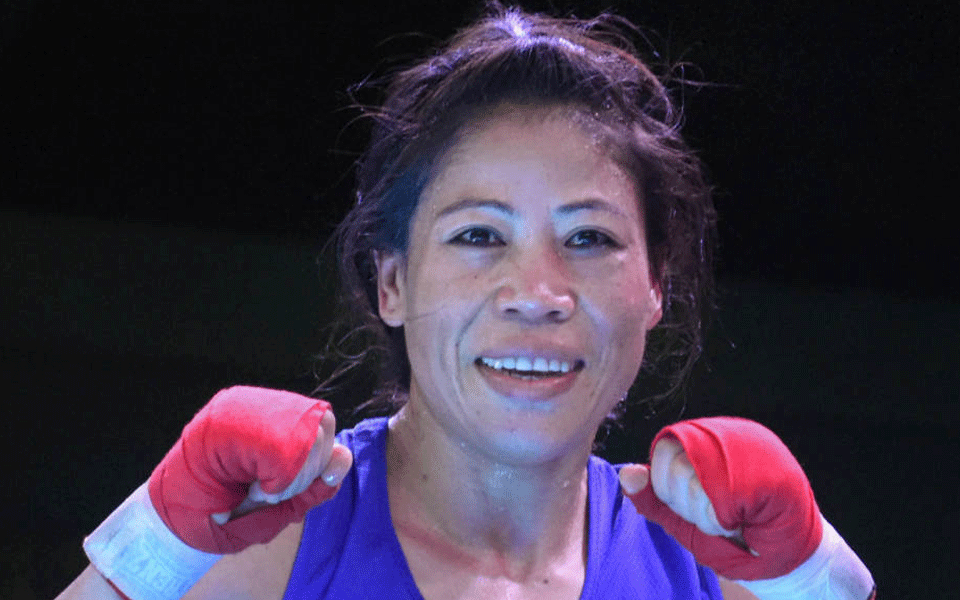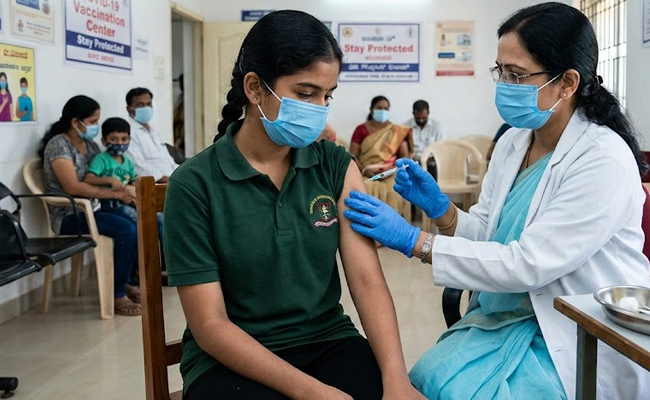New Delhi: Six-time world champion MC Mary Kom claimed the gold medal without breaking a sweat in the 23rd President's Cup, asserting her supremacy in a lop-sided 51kg bout final in Labuan Bajo, Indonesia on Sunday.
The Olympic bronze medallist pugilist decimated Australian April Franks 5-0.
The 36-year-old Indian had also won a gold medal at the India Open boxing tournament in May, but skipped the Asian Championships as part of a larger plan to enhance her chances of Olympic qualification.
The Asian Championship was held in Thailand in May.
Fresh from winning the gold at the India Open two months ago, Mary Kom participated in this prestigious tournament with the aim of testing herself and getting some much-needed bouts under the belt ahead of the World Championships.
Mary Kom, who claimed her sixth world title last year in Delhi, will be looking to qualify for the 2020 Tokyo Olympics in the World Championships in Yekaterinburg, Russia.
The 2019 World Boxing Championships for women will be held from September 7 to 21.
Let the Truth be known. If you read VB and like VB, please be a VB Supporter and Help us deliver the Truth to one and all.
London (PTI): The UK on Wednesday imposed a study visa ban on four countries accused of using the route as a backdoor entry to seek permanent refuge in the country, as part of a wider clampdown on the soaring rates of asylum applications.
The so-called "emergency brake" on student visas applies to Afghanistan, Cameroon, Myanmar and Sudan, with Afghans also subject to a skilled worker visa ban following a major surge in asylum claims from these countries.
The move comes as UK Home Secretary Shabana Mahmood introduces new legislation in Parliament this week, with the visa brake to be introduced via an Immigration Rules change on Thursday to come into force on March 26.
"Britain will always provide refuge to people fleeing war and persecution, but our visa system must not be abused," said Mahmood.
“That is why I am taking the unprecedented decision to refuse visas for those nationals seeking to exploit our generosity. I will restore order and control to our borders,” she said.
According to official statistics released by the Home Office alongside the visa ban announcement, asylum applications by students from Afghanistan, Cameroon, Myanmar and Sudan rocketed by over 470 per cent between 2021 and 2025 – making them among the most likely nationalities to claim asylum.
Meanwhile, the number of Afghans on work visas claiming asylum now outstripping the number of visas issued.
In what has been described as an “unprecedented step”, the Home Office said it will end sponsored study visas from all four countries and skilled worker visas for Afghan nationals.
“Tough action is required as asylum claims from legal routes have more than trebled since 2021 – making up 39 per cent of the 100,000 people who applied last year. In total, 133,760 people have claimed asylum after arriving legally in the past five years,” the Home Office said.
It said these refugees end up having to be accommodated at the expense of the British taxpayer, with an “above average proportion” of people from the four countries claiming destitution.
“Asylum support is currently costing more than 4 billion pounds a year – with nearly 16,000 nationals from the four countries currently supported at public expense, including over 6,000 in hotels," it added.
According to official data, between 2021 and the year ending September 2025, the proportion of Afghan asylum claims to study visas issued was 95 per cent, applications by students from Myanmar soared 16-fold over the same period and claims by students from Cameroon and Sudan spiked by more than 330 per cent.
The government pointed to its success in reducing student asylum claims by 20 per cent over the course of 2025, but stressed that further action is needed as those arriving on study visas still make up 13 per cent of all claims in the system.
The visa ban announcement comes on the back of Mahmood's announcement earlier this week that asylum status in the UK will be temporary, to be reviewed after 30 months.





